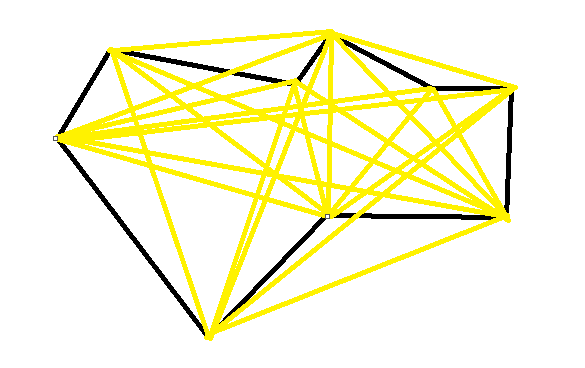I have a unique requirement that I'm racking my brain trying to find a solution. I have a set of irregular shaped polygons, and I would like to draw a line between all unique pair of vertices. In the crude example below, the black line represents the input polygon and the yellow represents the desired result. Ultimately, after building the lines, I want to query out the longest line for additional processing.









